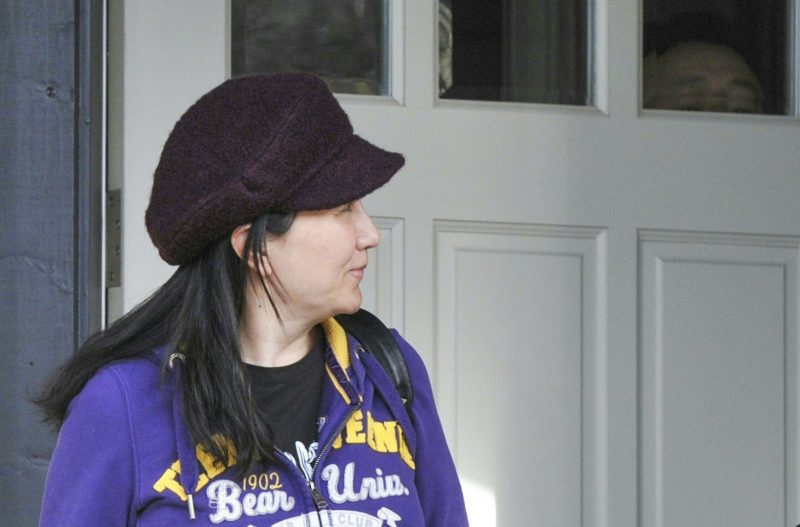Huawei exec vows to fight extradition to US in Canada court
Huawei Chief Financial Officer, Meng Wanzhou, is due to appear in court in Vancouver where she was detained in December on a US warrant
(Don MacKinnon)
Vancouver (AFP) – A top Chinese telecom executive whose arrest in Canada on a US warrant triggered a bitter diplomatic row vowed Wednesday to vigorously fight extradition to the US.
Meng Wanzhou, 47, who faces charges related to Iran sanctions violations, was appearing at a Vancouver courthouse to set a timetable for her upcoming extradition hearing.
“The criminal case against Miss Meng is based on allegations that are simply untrue,” her spokesman Benjamin Howes said outside, telling reporters she would apply for a stay of the proceedings.
He alleged that “political factors” were behind her arrest and said her rights had been violated.
Meng’s appearance was initially intended to be brief but the defense spent several hours reprising their objections to her December arrest in Vancouver.
Prosecutors, meanwhile, indicated that they wanted to fast-track the case.
Haggling over the disclosure of evidence — with the defense lamenting heavy redactions of 1,742 pages of documents released so far — risks drawing out the process.
The next court date in the process, which could last years, was set for September 23, while the formal extradition hearings are expected to begin in January.
Relations between Ottawa and Beijing were thrown into crisis by the arrest of Meng, the chief financial officer of telecom giant Huawei and possible heir to her father’s company.
Washington wants to put Meng on trial on fraud charges for allegedly violating Iran sanctions and lying about it to US banks, but the case has become a major irritant for Ottawa.
After her arrest, China detained former Canadian diplomat Michael Kovrig and businessman Michael Spavor in what observers saw as retaliation.
China later announced it suspected Kovrig of spying and stealing state secrets and alleged that Spavor had provided him with intelligence.
Two other Canadians convicted of drug trafficking, meanwhile, were sentenced to death. And Beijing recently blocked Canadian shipments of canola and pork worth billions of dollars.
Canada has accused Beijing of arbitrarily detaining both Kovrig and Spavor, and called the death penalties for Canadians Fen Wei and Robert Schellenberg “cruel and inhumane.”
It has also rallied the support of a dozen countries, including Britain, France, Germany and the US, as well as the EU, NATO and the G7, in its diplomatic feud with China.
– Caught between US, China –
Most recently, Ottawa has pressed Washington — which is threatening a trade war with Beijing — to step up its pressure on behalf of the detained Canadians.
“Canadian lives are at stake,” an unnamed Canadian official told broadcaster CTV.
Prime Minister Justin Trudeau has insisted that Meng’s case would be dealt with by the courts, and not politicized.
He sacked his ambassador to China in January for suggesting that Meng had a “strong case” against extradition, citing remarks by US President Donald Trump that he might seek to have the charges against Meng dropped in exchange for trade concessions from China.
On Wednesday, Meng’s lawyers raised Trump’s comments as proof that the case was politically motivated, describing them as “intimidating and corrosive to the rule of law.”
They also refuted the principal accusation that Meng misrepresented to US banks Huawei’s business dealings in Iran.
Meng was released on bail in mid-December in Vancouver, where she owns two residences, on a Can$10 million bond. She has also been ordered to wear an electronic anklet and hand over her passports.
She is suing the Canadian government, alleging false imprisonment and other rights breaches.
Huawei is also facing separate US charges for allegedly stealing American technology, and in recent months has faced a US campaign to blacklist it over espionage fears.
Disclaimer: Validity of the above story is for 7 Days from original date of publishing. Source: AFP.


